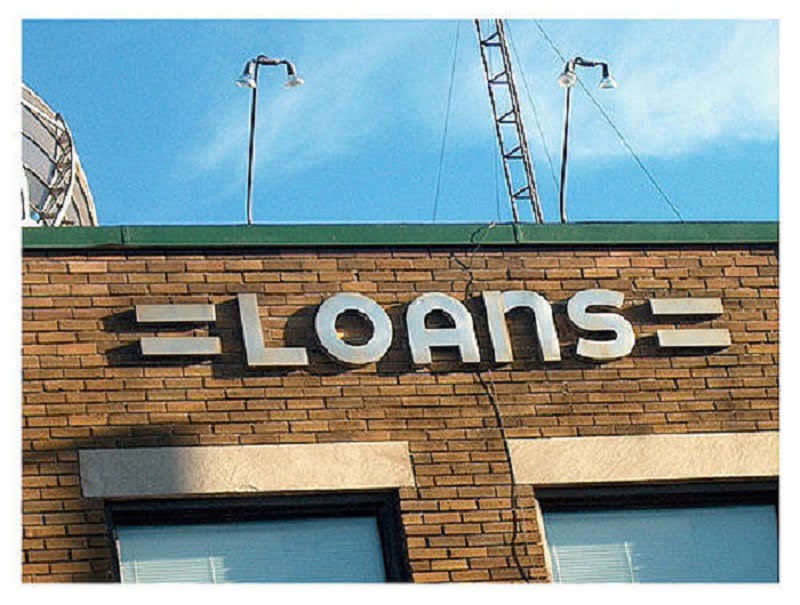Loan Types and How does it Work?
by Mashum Mollah Finance Published on: 10 October 2016 Last Updated on: 03 April 2024

When we are talking about business whether it is a start-up, a sole proprietorship, or a limited liability corporation, etc. – the first thing that comes in our mind is a financial condition rather say finance. Now it is very common that one needs a small or huge amount of hard cash to grow, especially to start-up the business. This the fundamental truth of any business.
The Pandemic has created unfavorable economic situations for businesses of all scales and sizes. On the one hand, businesses are trying to stay afloat and bounce back when the economy returns to normal. On the other hand, they realize that an infusion of capital at this stage can help them increase output and cater to demands, as other competitors are suffering. This is why it is always important to compare bridging loans in order to ensure that as a business, you are getting the best deal in the market.
Now if you do have the money for your business purpose then there is no problem at all primarily if you looking from a financial point of view; but if you don’t then what? Here, my friend comes the term business loan. Now there is much financial organization available in the market to lend money as a secured or unsecured loan. If you are considering making a loan or line of credit to finance a business you can opt for the secured or unsecured option.
Obviously, you are thinking that – Loan – ok; Business Loan – ok; Personal Loan – ok; but what those two are.
Unsecured Loan:
An unsecured loan is issued and supported only by the borrower’s creditworthiness, rather than by any type of collateral. That’s why it is also called Signature Loan or commonly known as Personal Loan. The unsecured loan is approved within a short period of time because you do not have to give an asset as collateral. Easy approval, few administrative formalities, and no collateral are the main features of unsecured loans. Lenders take more risk by making such a loan with no property or assets to recover in case of default which is why interest rates are considerably higher. Examples of this type of loan are –
• Credit cards:
Another common way to borrow. Though don’t have lump-sum money available at the beginning, have a pool of money available.
• Personal loan or Signature Loan:
As the name states – secured buy nothing but the borrower’s signature.
• Line of Credit:
Borrowers have a cap on the amount they can borrow.
• Student or Education Loan:
As the name suggests, it is for education funding.
• Peer to Peer loan:
It allows you to borrow money from some individual rather than a financial institution.
• Small Business Loan:
The financial institution lends its money to experienced proven businessman having a good credit score.
The most important thing in the unsecured business loan is that lenders believe that you have the ability to repay the loan.
Secured Loan:
Loans protected by some sort of collateral or an asset is known as secured loans. Since the guaranteed loan products must be backed by assets, and these assets must be reviewed and verified, it is possible that the approval process takes time. Such initial due diligence is worth it because it will give you the right to a better interest rate. You could opt for a secured loan or a secured line of credit for making major renovations or consolidate your debts, for example.
The secured loan allows you to borrow a higher amount of money at a better interest rate, unlike an unsecured loan. As the lender takes less risk you got a cheaper rate of interest for the loan. Given a guarantee to cover credit risk, collateral can take many forms: bonds, shares, and even bank loans.
While it is mainly used in repurchase agreements ( repos ), it becomes a key element of trade on derivatives markets.
Secured loans typically have a requirement for collateral, which means you need to pledge assets equal to or greater than the amount needed. This collateral acts as security for the lender, reducing their risk. To calculate the maximum loan amount you can qualify for, you can use a secured loan calculator, which makes the process easier by taking into account the value of your collateral and other factors.
Collateral helps to secure a loan. Lenders use collateral as a safeguard. In contrast with unsecured loan collateral loan is here the lender can ding your credit or file a legal action against you. On scrutinize, your business credibility, revenues, business history, financial condition, and equity contribution when a bank or financial institution agreed that you are a viable borrower, approves loans. This should only be used as a last resource — as failing on repay can cost you the collateral.
If you have poor credit or the worst credit history though you need money then the collateral is the best option for you. There are mainly 4 or 5 types of a secured loan—
Car Title Loan:
Pawning upon your car title you can get money easily and fast. A car title loan uses your car title instead of your credit score. So if have poor credit that does not hinder your need for a loan. Online information is very important while seeking a title loan. As this kind of loan uses the car title valuation of your car and amount of cash you need is the key factor. Don’t think that if you borrow a car title loan, you cannot drive your car until you repay the loan. No, not at all – you can still drive while paying off the loan. A car title loan in Orlando is very common.
Mortgage loan:
 You have to give your real property documents as collateral ( like home, car, flat, jewelry, etc) as a mortgage to the lender to borrow cash.
You have to give your real property documents as collateral ( like home, car, flat, jewelry, etc) as a mortgage to the lender to borrow cash.
Repossession:
It is the process of a property is taken back by the creditor when the debtor does not pay the debt due on the property such as a home loan.
Foreclosure:
It is a legal process in which mortgaged property is sold to pay the debt of the defaulting borrower.
Nonrecourse loan:
It is a secured loan where the collateral is the only security or claim the creditor has against the borrower, and the creditor has no further recourse against the borrower for any deficiency remaining after foreclosure against the property.
Read Also:
- Personal Loans are a Healthy Option for Financing
- Is There Automobile Title Loans in Yuma, Arizona?
- Are you a Woman Entrepreneur? Check out these Loans
- How Are Interest Rates Determined on Business Loans?
- Bridging Loan Volumes Increase in the UK
- 5 Mistakes to Never Make When Applying for a Loan against Property








































































































